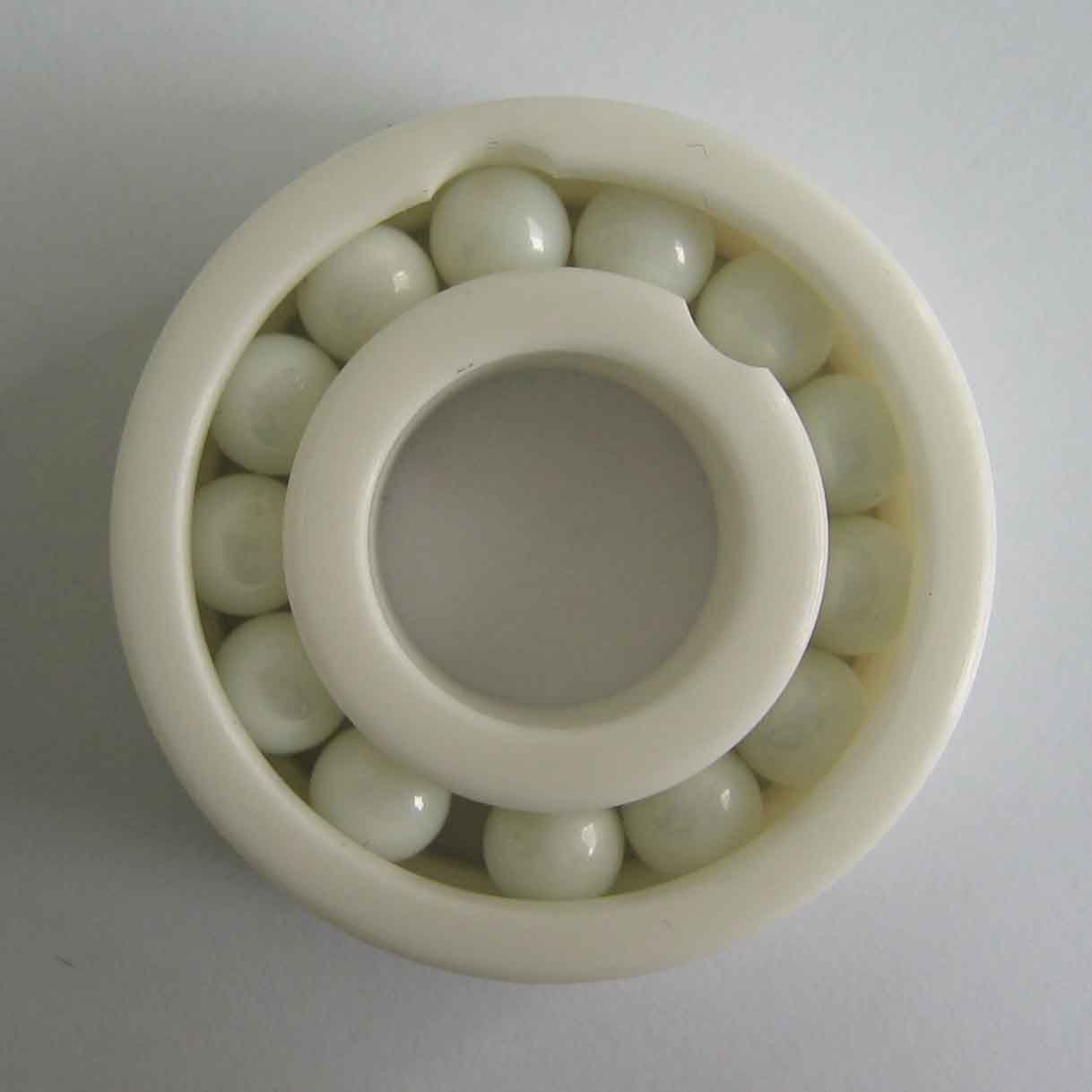Full Ceramic Bearings are made entirely of ceramic material and are superior to common steel bearings in many ways. Ceramic is the perfect material for any application seeking to achieve higher RPM’s, reduce overall weight or for extremely harsh environments where high temperatures and corrosive substances are present.
Applications such as cryopumps, medical devices, semiconductors, machine tools, turbine flow meters, food processing equipment, robotics and optics. Ceramic materials commonly used for bearings are Silicon Nitride (Si3N4), Zirconia Oxide (ZrO2), Alumina Oxide (Al2O3) or Silicon Carbide (SiC.)
Because ceramic is a glass like surface it has an extremely low coefficient of friction and is ideal for applications seeking to reduce friction. Ceramic balls require less lubricant and have a greater hardness than steel balls which will contribute to increased bearing life. Thermal properties are better than steel balls resulting in less heat generation at high speeds. Full Ceramic bearings can have a retainer or full complement of balls, retainer materials used are PEEk and PTFE.
Full ceramic bearings can continue to operate under extremely high temperatures and are capable of operating up to 1800 Deg. F. Ceramic is much lighter than steel and many bearings are 1/3 the weight of a comparable steel bearing. Full ceramic bearings are highly corrosion resistant and will stand up to most common acids, they will not corrode in exposure to water or salt water. And finally full ceramic bearings are non-conductive.
The purpose of a radial bearing is to reduce rotational friction and support loads. This is achieved by using two races to hold the balls and to spread the load through the balls. As the bearing race rotates it causes the balls to rotate. The ball provides for substantially less rolling resistance and coefficient of friction than if two flat surfaces were rotating.
Single-row, deep groove radial ball bearings are the most common bearing type, having a wide range of applications. Radial bearings are made with very high levels of precision and used in applications where rotational performance and low torque is necessary, but load is a secondary issue. Deep-groove bearings however do have higher load ratings for their size than shallow-groove ball bearings, but are also less tolerant of misalignment.

 0086-411-66665948
0086-411-66665948 sales@dlrtr.com
sales@dlrtr.com joycewang323
joycewang323